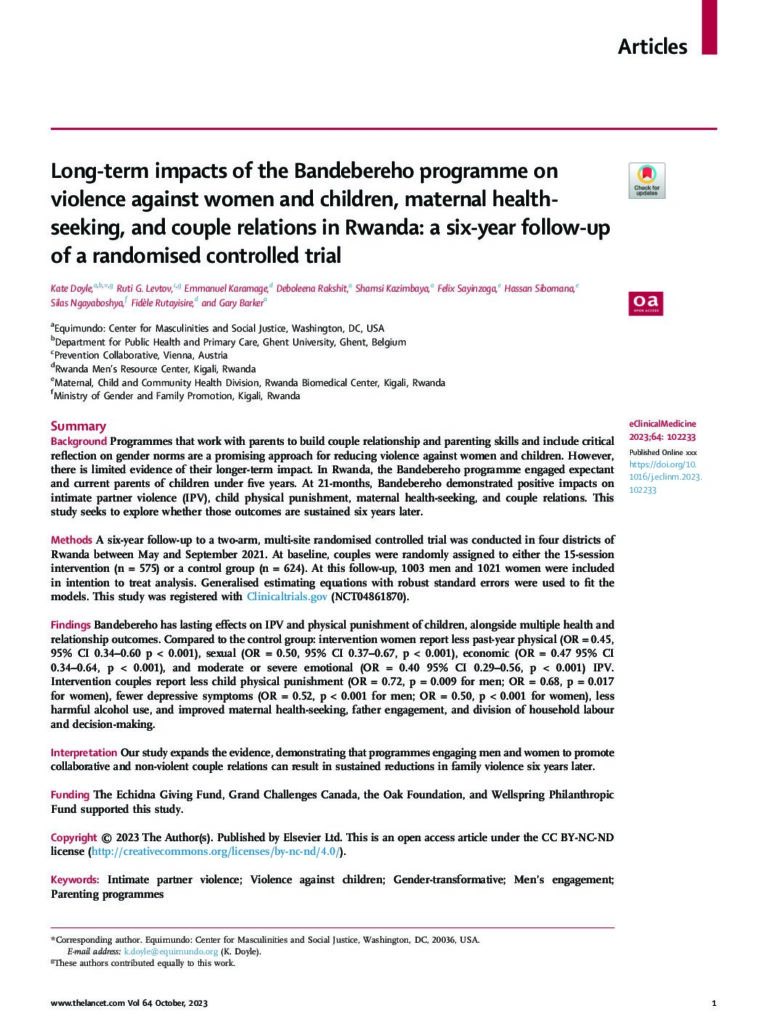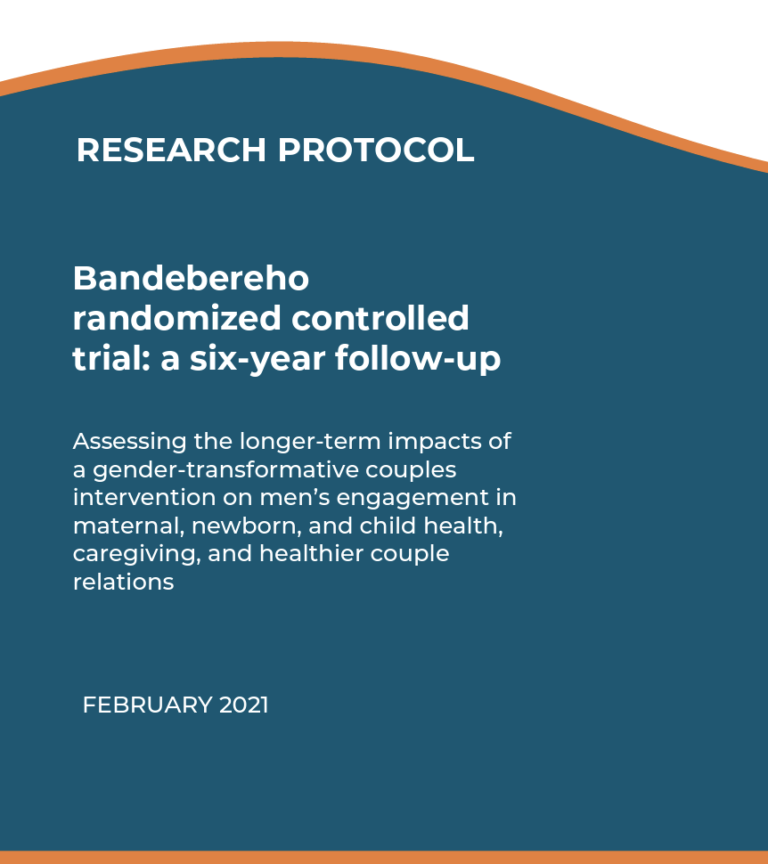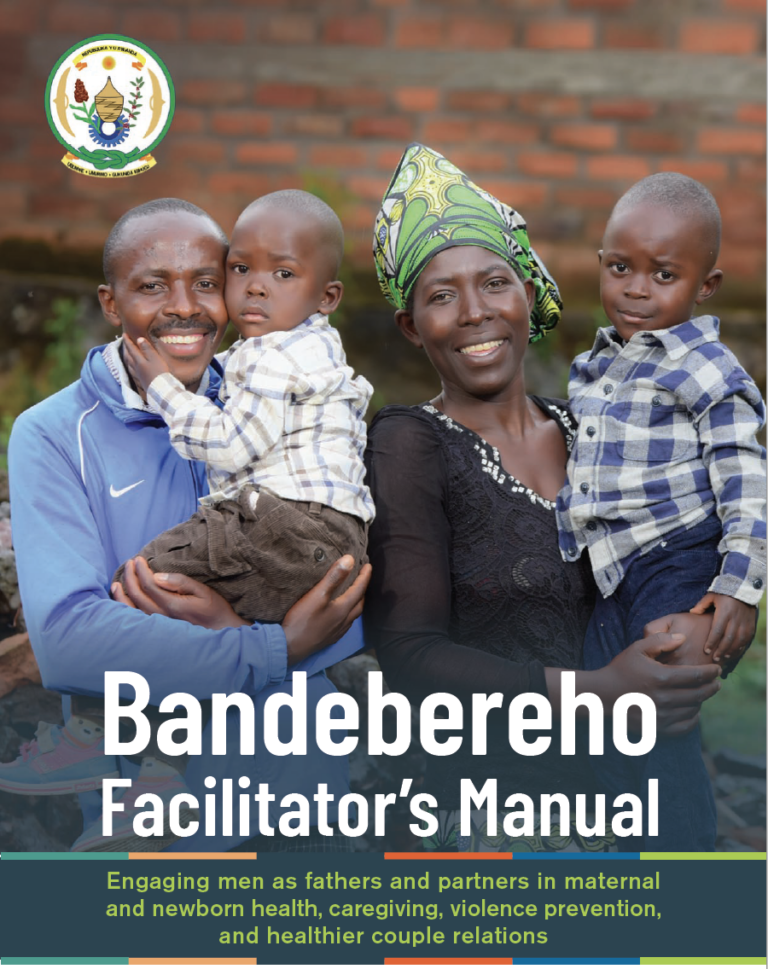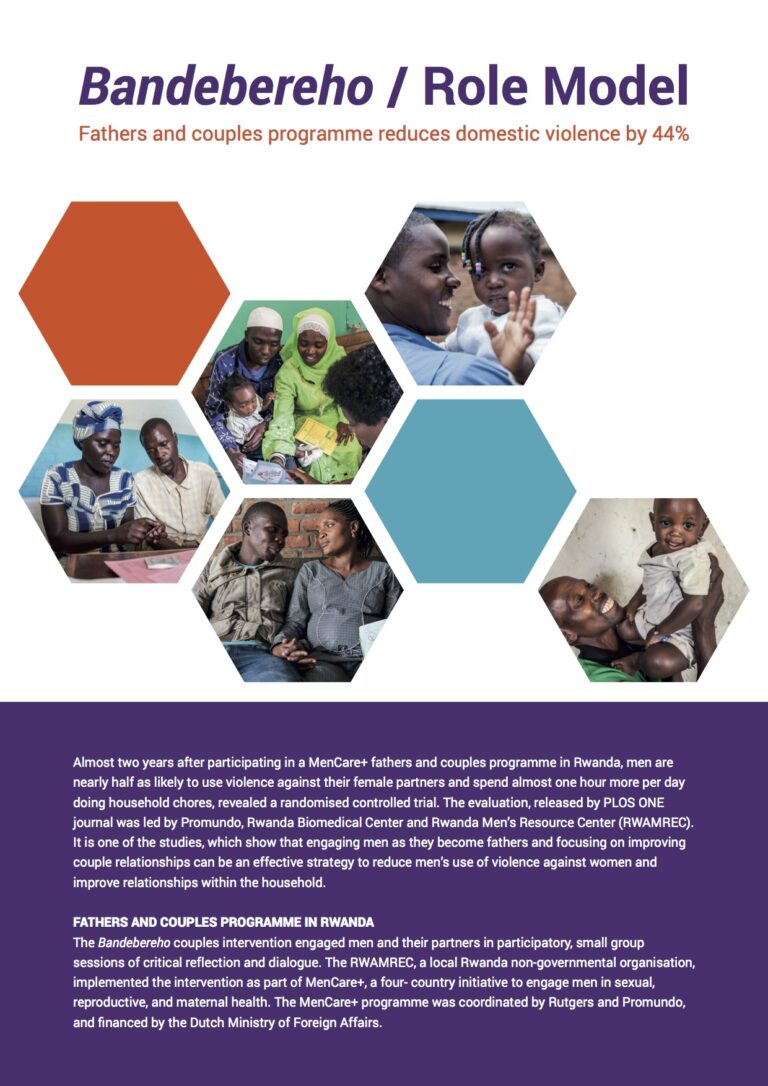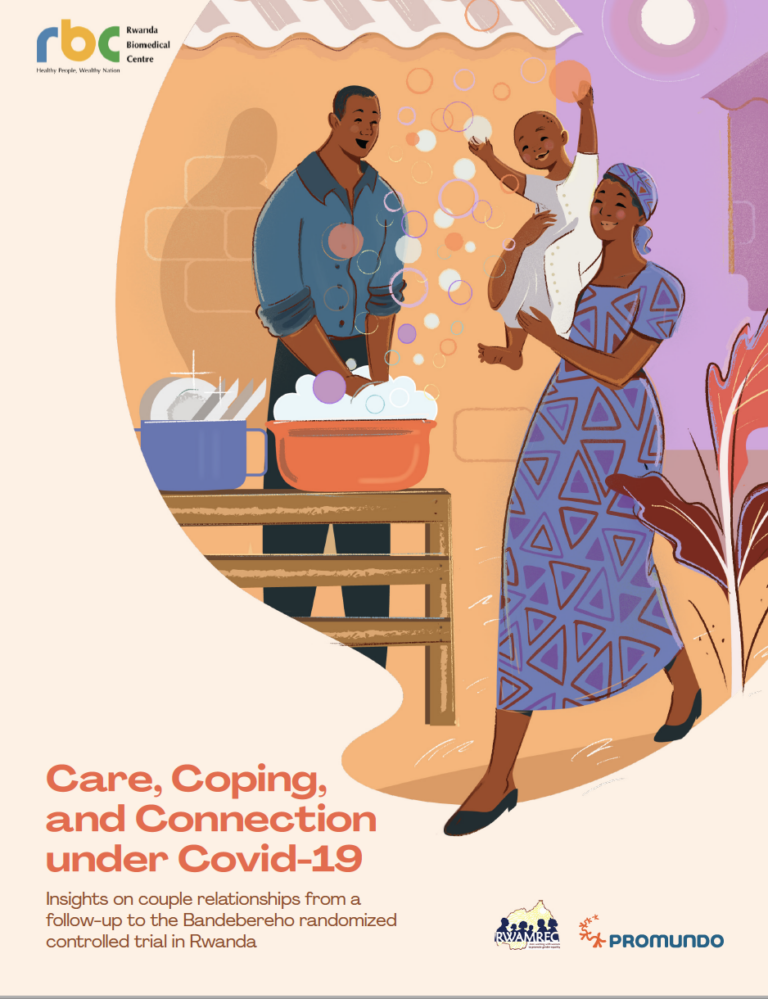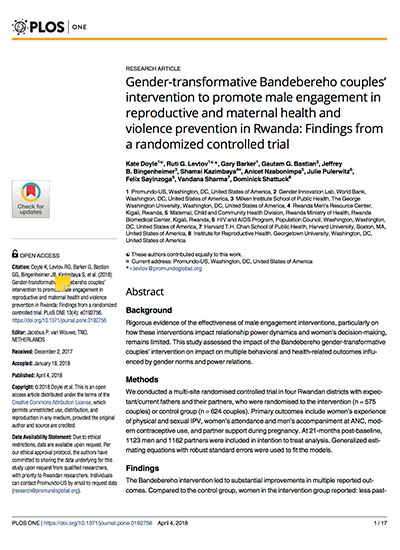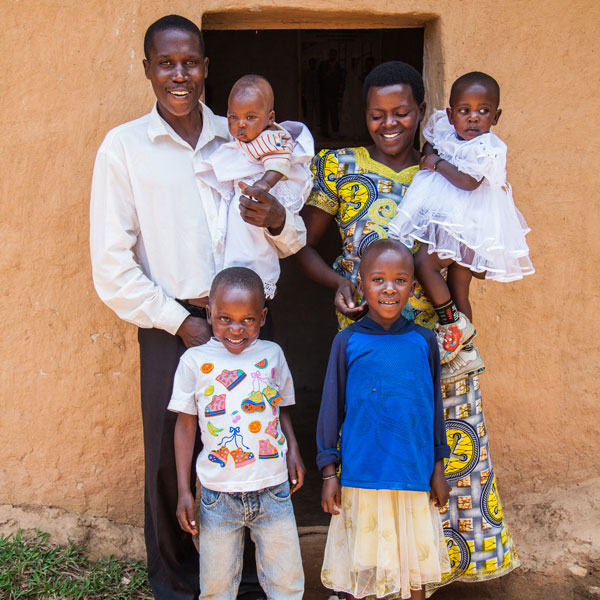Programs that work with parents to build couple relationship and parenting skills and include critical reflection on gender norms are a promising approach for reducing violence against women and children. However, there is limited evidence of their longer-term impact. In Rwanda, the Bandebereho program, an adaptation of Program P, engaged expectant and current parents of children under five years. At 21-months, Bandebereho demonstrated positive impacts on intimate partner violence (IPV), child physical punishment, maternal health-seeking, and couple relations. This study seeks to explore whether those outcomes are sustained six years later.
Resources
English
Long-term impacts of the Bandebereho program on violence against women and children, maternal health-seeking, and couple relations in Rwanda
PDF Preview